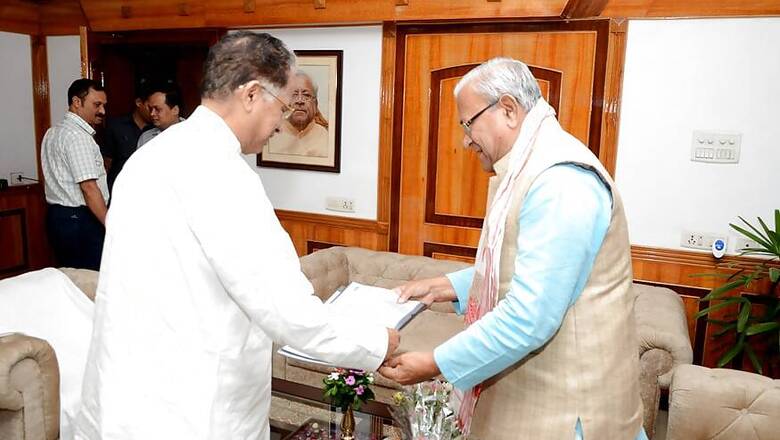
views
There was a time, around the turn of the millennium, when Congress was firmly saddled in the states, and a clutch of regional satraps were going strong. Though always under the High Command's shadow, they were given a free hand, and protected against rebellions. And in return, they delivered, election after election.
This exclusive club of regional leaders included Delhi's Sheila Dikshit, Andhra Pradesh's YSR Reddy, Madhya Pradesh's Digvijaya Singh and a certain Tarun Gogoi in Assam. The Ahom general managed the near impossible of winning the state three times in a row. So long was the tenure, that many new voters say they have only seen one Chief Minister in living memory. This also explained why they so overwhelmingly wanted a change.
While employment, industries and soil erosion had been key concerns during the fifteen-year rule, it cannot be ignored that he managed to turn the state around. Gogoi came to power in 2001, during the peak of the alleged secret killings. In the time of the then chief minister Prafulla Mahanta, many relatives, friends and sympathisers of ULFA insurgents were systematically killed by unknown gunmen, leading to a fear psychosis in the state. After Gogoi took over the killings stopped, though the perpetrators were never brought to book.
Those were also the days of the bomb blasts. Video journalist Mukut Medhi, who has been in the profession for over twenty years, says the peak work hours in the early 2000s were from 4pm to 9pm. There would be a bomb blast every week; the only uncertainties were which day of the week and how many would die. A lot has changed since then. The city is open past 10pm, and vehicles can be seen on the roads till late in the night. The change was visible not just in Guwahati, but across the state.
If Sheila Dikshit would be remembered for developing the infrastructure of the national capital (inspite of corruption allegations), Gogoi's legacy would be the improvement law and order in Assam. There are friends who say they migrated out of the state mostly out of fear of the blood games on the streets. They say things are much better now.
But does that mean the relative calm in the state would ensure the end of migration ? No. While peace has returned, jobs and ease of doing business hasn't. Businessmen often complain about the number of hands they have to grease to get the simplest of jobs done. Many shifted their businesses out, and this in turn made jobs difficult to come by.
With a rise in the number of young , aspirational voters, this became the rallying point for the 'agents of poriborton'.
Late evening on the day of counting, the mood at the CM's residence was sombre. He was talking about the days of the Assam Movement, when a Congress man was seen as a pariah. Anyone with links to Congress was ostracised. Tarun Gogoi told us how he couldn't attend his own brother's wedding, because he remained a Congress man. From there, to an uninterrupted fifteen years rule, is a contribution the party can never forget.
That's probably why Sonia Gandhi never interfered with his style of operations. Or play into Himanta's hand when he staged a mini coup. Even this time. Gogoi was given a free hand. When election strategist Prashant Kishore mooted a grand alliance of Congress, AGP and AIUDF, the high command went with a confident Gogoi who wanted to fight it alone. In retrospective, Gogoi's confidence seems misplaced.
What ails all these regional kingpins? Probably the answer lies in what ails the Congress as a whole. There comes a time when the leader has to hand over the mantle to the next generation. And this in Congress invariably ends up as the anointment of the leader's progeny. If Congress indeed goes for the surgery Digvijaya Singh is talking about, these would be the uncomfortable questions: Isn't Ajay Maken a better alternative to Sandeep Dikshit? Wasn't Himanta Biswasarma the right man to take over from Gogoi? And, is there no party leader more able than Rahul Gandhi?
It is unlikely the party would even ponder over these uncomfortable questions, let alone take affirmative action. It remains to be seen whether Congress would go as far as a heart surgery or settle for just an oxygen mask. With this Assam election, an era has come to an end. The era of leaders who joined the party around Indira Gandhi's time and became trusted aides of the High Command in the late nineties. An era of politicians who would take every question thrown at them, and not run away from a tough interview.
An era, whose leaders are now being moved to the 'marg darshak mandal'.



















Comments
0 comment